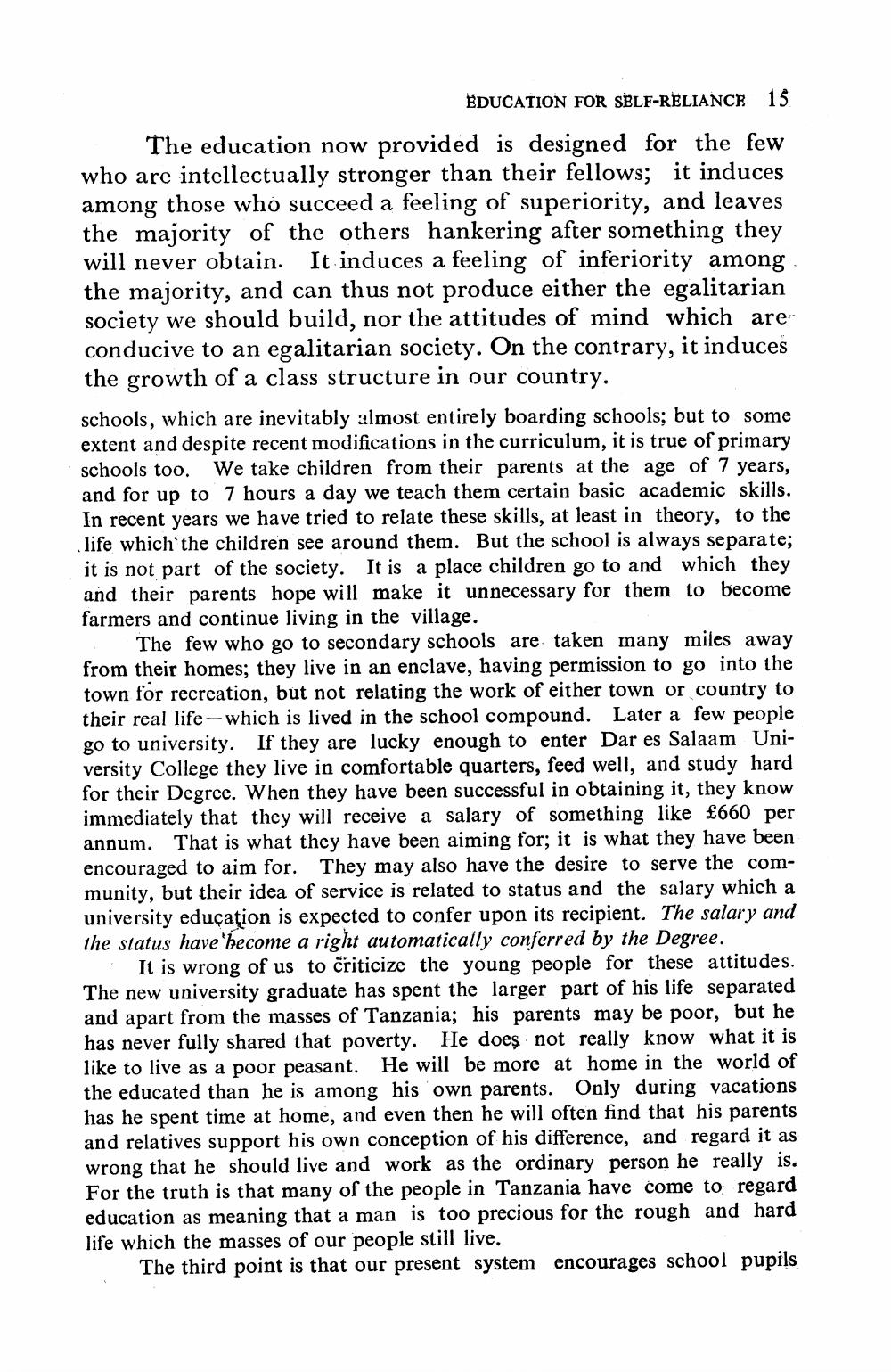Book Title: Education For Self Reliance Author(s): Julius K Nyerere Publisher: Julius K Nyerere View full book textPage 7
________________ EDUCATION FOR SELF-RELIANCE 15 The education now provided is designed for the few who are intellectually stronger than their fellows; it induces among those who succeed a feeling of superiority, and leaves the majority of the others hankering after something they will never obtain. It induces a feeling of inferiority among the majority, and can thus not produce either the egalitarian society we should build, nor the attitudes of mind which are conducive to an egalitarian society. On the contrary, it induces the growth of a class structure in our country. schools, which are inevitably almost entirely boarding schools; but to some extent and despite recent modifications in the curriculum, it is true of primary schools too. We take children from their parents at the age of 7 years, and for up to 7 hours a day we teach them certain basic academic skills. In recent years we have tried to relate these skills, at least in theory, to the life which the children see around them. But the school is always separate; it is not part of the society. It is a place children go to and which they and their parents hope will make it unnecessary for them to become farmers and continue living in the village. The few who go to secondary schools are taken many miles away from their homes; they live in an enclave, having permission to go into the town for recreation, but not relating the work of either town or country to their real life - which is lived in the school compound. Later a few people go to university. If they are lucky enough to enter Dar es Salaam University College they live in comfortable quarters, feed well, and study hard for their Degree. When they have been successful in obtaining it, they know immediately that they will receive a salary of something like £660 per annum. That is what they have been aiming for; it is what they have been encouraged to aim for. They may also have the desire to serve the community, but their idea of service is related to status and the salary which a university education is expected to confer upon its recipient. The salary and the status have become a right automatically conferred by the Degree. It is wrong of us to criticize the young people for these attitudes. The new university graduate has spent the larger part of his life separated and apart from the masses of Tanzania; his parents may be poor, but he has never fully shared that poverty. He does not really know what it is like to live as a poor peasant. He will be more at home in the world of the educated than he is among his own parents. Only during vacations has he spent time at home, and even then he will often find that his parents and relatives support his own conception of his difference, and regard it as wrong that he should live and work as the ordinary person he really is. For the truth is that many of the people in Tanzania have come to regard education as meaning that a man is too precious for the rough and hard life which the masses of our people still live. The third point is that our present system encourages school pupilsPage Navigation
1 ... 5 6 7 8 9 10 11 12 13 14 15 16 17 18
